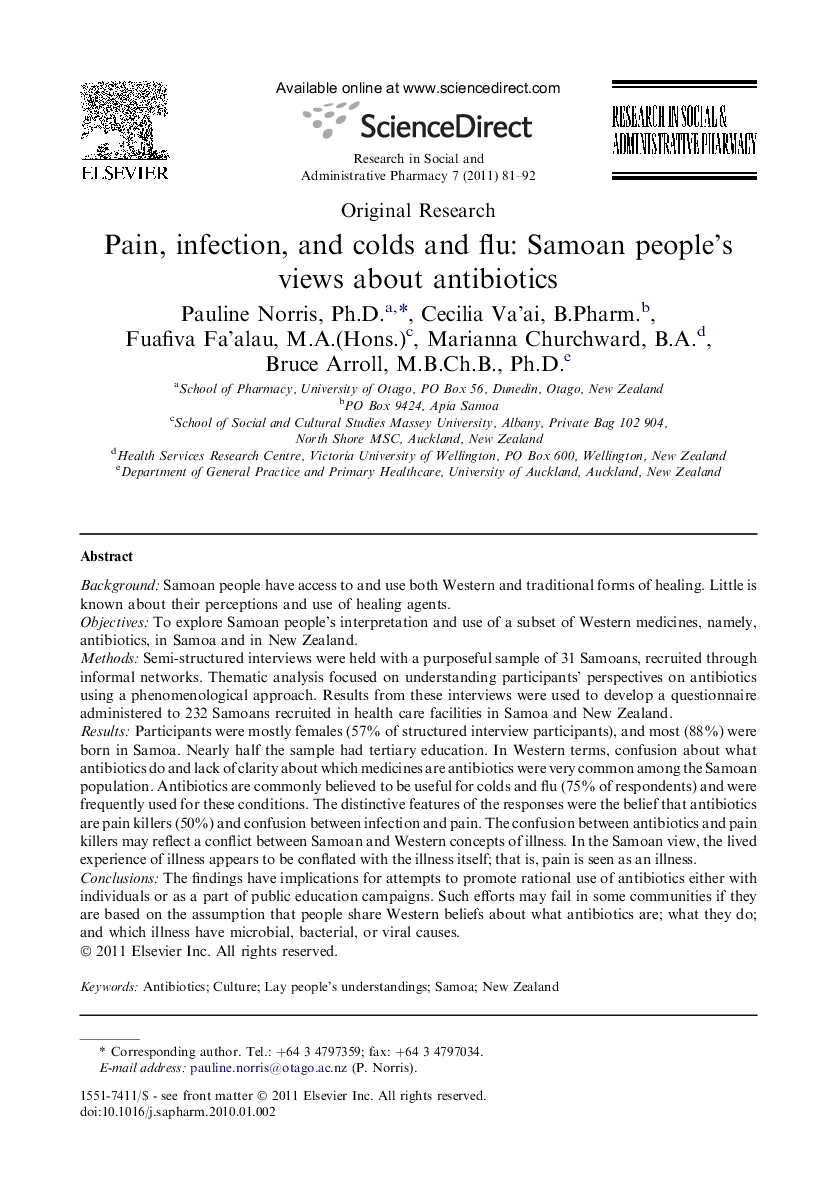| Article ID | Journal | Published Year | Pages | File Type |
|---|---|---|---|---|
| 2508668 | Research in Social and Administrative Pharmacy | 2011 | 12 Pages |
BackgroundSamoan people have access to and use both Western and traditional forms of healing. Little is known about their perceptions and use of healing agents.ObjectivesTo explore Samoan people's interpretation and use of a subset of Western medicines, namely, antibiotics, in Samoa and in New Zealand.MethodsSemi-structured interviews were held with a purposeful sample of 31 Samoans, recruited through informal networks. Thematic analysis focused on understanding participants' perspectives on antibiotics using a phenomenological approach. Results from these interviews were used to develop a questionnaire administered to 232 Samoans recruited in health care facilities in Samoa and New Zealand.ResultsParticipants were mostly females (57% of structured interview participants), and most (88%) were born in Samoa. Nearly half the sample had tertiary education. In Western terms, confusion about what antibiotics do and lack of clarity about which medicines are antibiotics were very common among the Samoan population. Antibiotics are commonly believed to be useful for colds and flu (75% of respondents) and were frequently used for these conditions. The distinctive features of the responses were the belief that antibiotics are pain killers (50%) and confusion between infection and pain. The confusion between antibiotics and pain killers may reflect a conflict between Samoan and Western concepts of illness. In the Samoan view, the lived experience of illness appears to be conflated with the illness itself; that is, pain is seen as an illness.ConclusionsThe findings have implications for attempts to promote rational use of antibiotics either with individuals or as a part of public education campaigns. Such efforts may fail in some communities if they are based on the assumption that people share Western beliefs about what antibiotics are; what they do; and which illness have microbial, bacterial, or viral causes.
